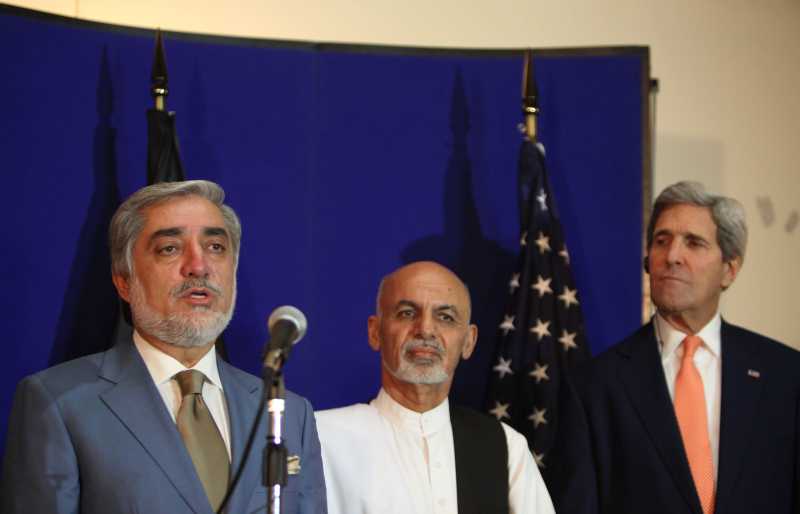
Afghanistan’s June 14 presidential runoff was marred by large-scale fraud, the Independent Electoral Commission has said, announcing that it was invalidating 16 percent of the ballots cast.
“There was massive fraud perpetrated by the security forces, governors and members of the IEC. Undoubtedly, much of the fraud happened in coordination with IEC employees,” Commissioner Azizullah Bakhtyari said in comments broadcast by Tolo television Monday.
The IEC’s decision to throw out ballots from 1,028 polling stations, representing 16 percent of the total, followed an agreement between candidates Ashraf Ghani and Abdullah Abdullah for an audit of all 8.1 million ballots cast.
Bakhtyari said he hoped the recount would restore Afghan voters’ trust in the electoral process and he vowed that those involved in the fraud would be prosecuted.
The recount started July 17, but the operation has been halted several times amid disagreement about the criteria for determining whether a ballot was valid.
Abdullah, who finished on top in April’s first round of voting, refused to recognise preliminary runoff results that showed Ghani winning with 56.4 percent of the vote.
Denouncing what he described as “fraud on an industrial scale”, Abdullah talked about forming a parallel government.
Since then, US Secretary of State John Kerry has visited Kabul twice. He managed to elicit pledges from Abdullah and Ghani to form a unity government no matter which man emerges as the next president.
Unity govt.
Head of the UN Assistance Mission in Afghanistan (UNAMA), Jan Kubis said there is “no better way forward” other than a unity government in the crisis-torn country.
“There is no better way forward other than a government of national unity led by an elected president, as certified by the Independent Election Commission,” Xinhua quoted Kubis as saying Thursday.
“I continue to emphasise that in a government of national unity there will be no losers, only partners.”
Kubis told the UN Security Council members via video-conference that the current political deadlock is deepening a crisis which has already taken a heavy political, security and economic toll in the country with “real risks for the future”.
Afghanistan’s presidential election was held April 5.
Since none of the eight contenders succeeded in securing over 50 percent of the votes cast, the two front-runners went for a run-off June 14.
The main phase of the UN-supervised audit of the run-off was completed Sep 4 and the announcement of updated results is expected shortly.